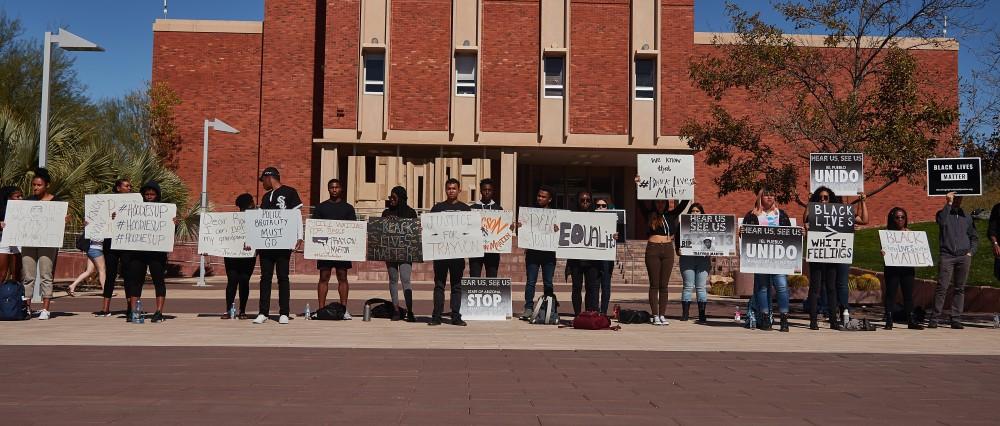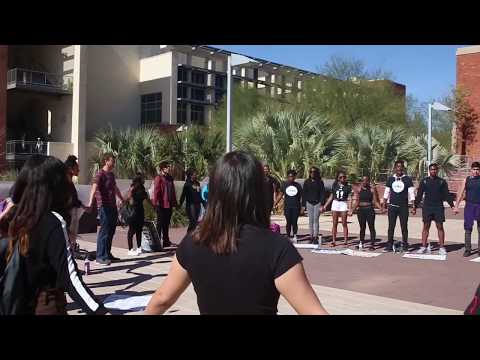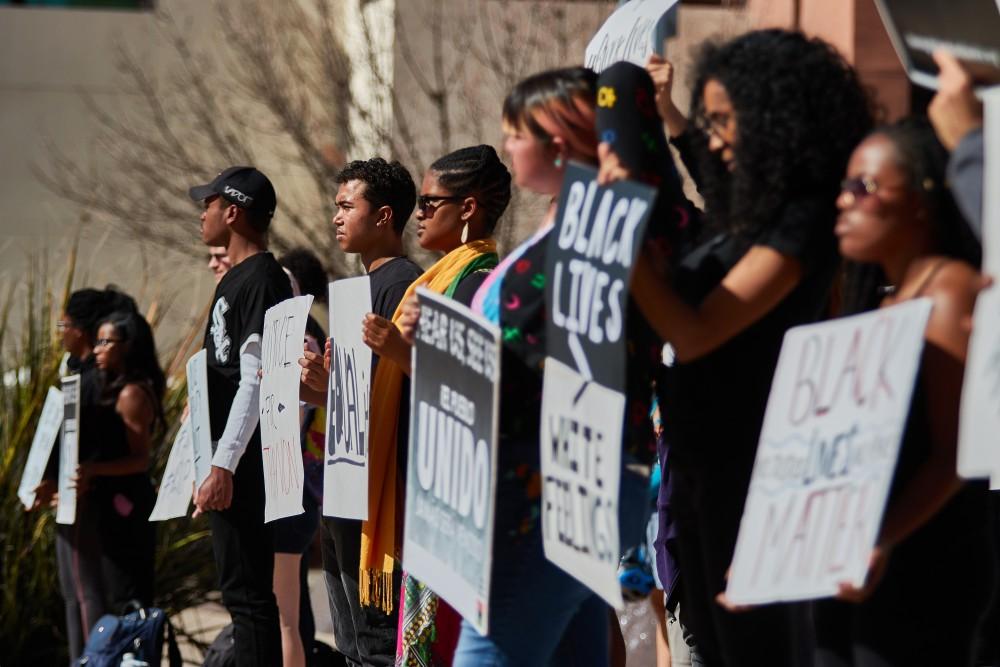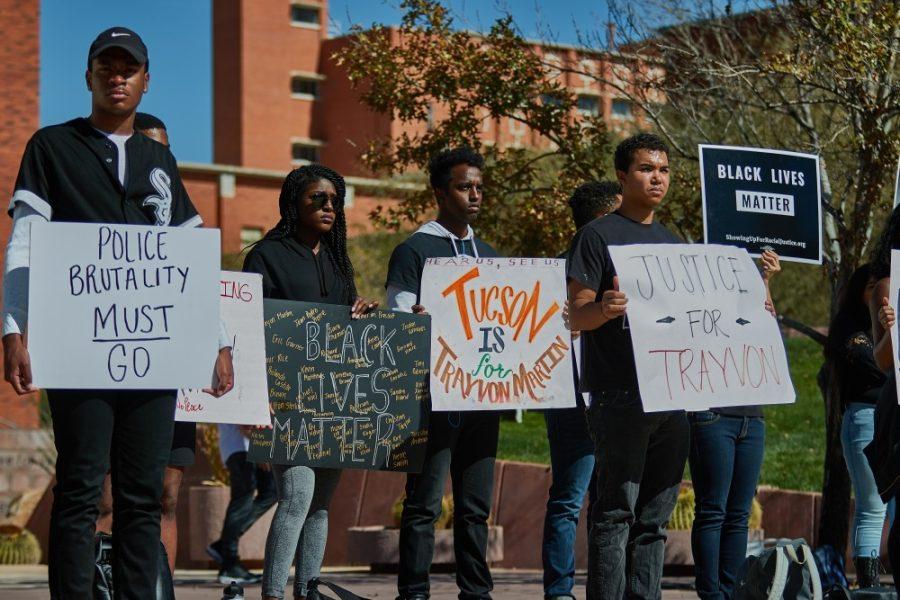Students from the University of Arizona Black Student Union held a silent protest in front of the Administration building Feb. 5 — what would have been Trayvon Martin’s 23rd birthday.
Standing in solidarity with Martin, whose death unfolded in the national media after being fatally shot, BSU members stood silently with signs that read “hear us, see us” and “black lives matter.”
The annual protest has become somewhat of a tradition for the BSU, representing the importance of challenging police brutality and honoring the lives lost because of it.
RELATED: Meeting reveals community displacment to administration
After protesting for over an hour, the group formed a circle and chanted, “It is our duty to fight for our freedom. It is our duty to win. We must love and support each other. We have nothing to lose but our chains.”
The students then marched in three lines into the Administration building and through campus until they arrived at the MLK Building.

“Today we hold remembrance for Trayvon Martin, along with all the other black individuals who have been killed as a result of police brutality,” said Zeina Cabrera-Peterson, graduate assistant of African American Student Affairs (AASA). “We created this silent demonstration as a way for us to be together, hold silence and give space for those who have been killed.”
According to BSU President Hassan Farah, the protest was also an opportunity for students to exercise their free speech and make their purpose known on campus.

“BSU will always be present at the UofA. Its mission is more or less to promote identity, our identity, and to be able to make a mark on this campus,” Farah said. “We want to address systematic issues in the administration and the institution here at the university, and make sure that we’re holding the administration accountable to serving all of its students.”
After holding a meeting on Jan. 24 with UA President Dr. Robert Robbins and other members of the UA administration and providing a list of demands, students of the BSU said they appreciate that there have been actions taken to support their needs, including funding for AASA.
While the BSU recognized the effort made by President Robbins to support black students, they said there are other administrators, faculty, staff and students who they would also like to see take action.

“Most black students can point to a time on campus where they felt singled out,” Farah said. “It goes to cultural competency for faculty and staff to be able to know what microagressions are, to know that certain students are feeling pressure that other students may not experience.”
As a UA student, Cabrera-Peterson said she had experienced these things first-hand. She wants other students, faculty and staff to not only listen to the BSU’s message, but also take action to fix the issues.
RELATED: Cultural groups demand to be heard, university listens
“Ignorance and microagressions do not just stop. I’ve always known the pigmentation of my skin because people make note of it,” Cabrera-Peterson said. “More than that is the constant feeling of needing to be perfect in class because I don’t want anyone to look down on me based on the color of my skin.”
Farah explained that everyone within the university has to recognize their own power and their own privilege in order to create this type of institutional change. Along with marginalization in the classroom, he said many black students also hear racial slurs and derogatory messages in the residence halls.
“If they are the ones in charge of creating an environment of learning, they are also in charge of creating a welcoming environment for all students, whether that be trans students, black students, students of color, gay students or any other marginalized students,” Farah said.
Follow Jasmine Demers on Twitter









